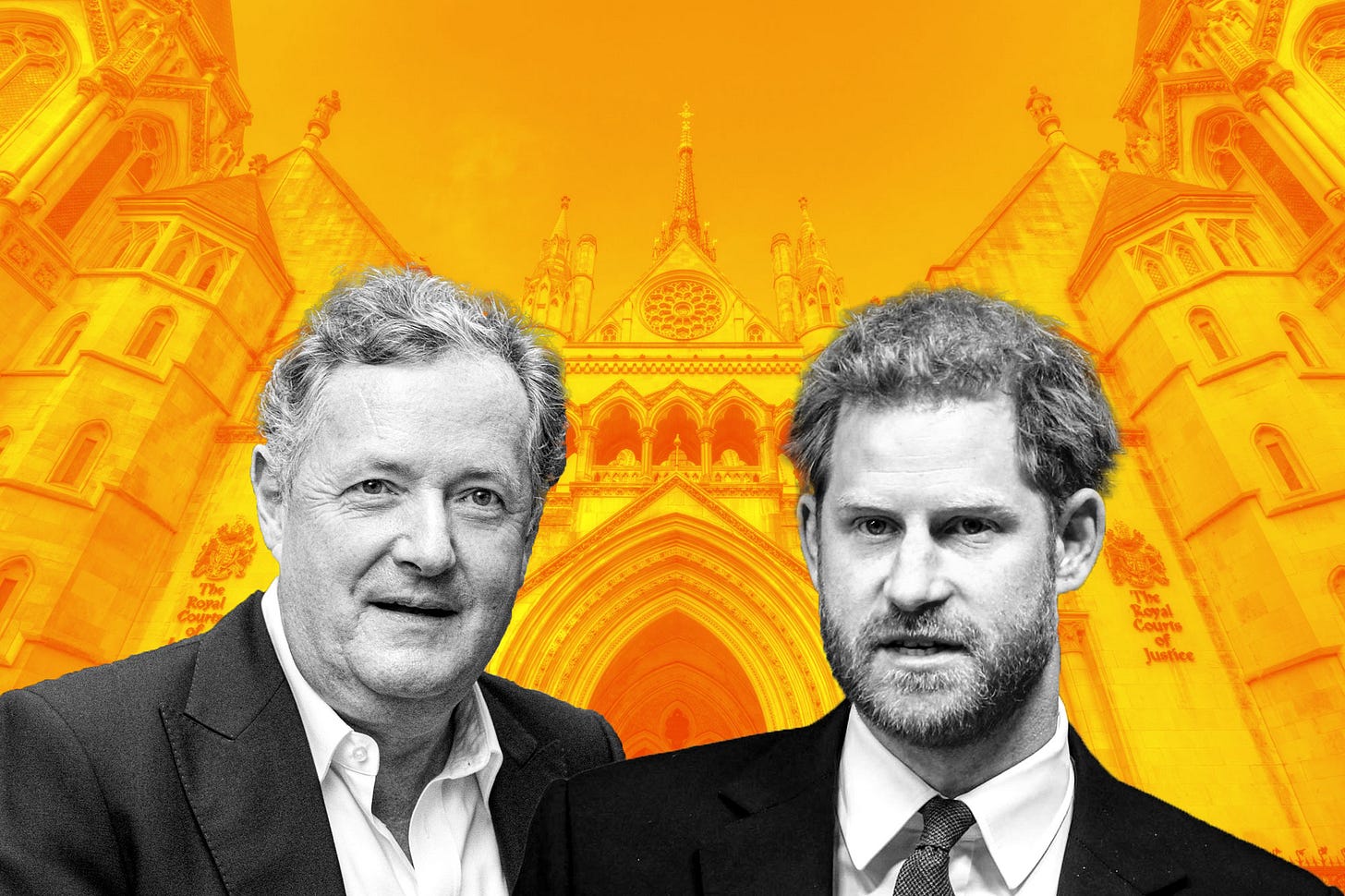Crime Report: Brits Say They Don't Trust British Newspapers Not to Break the Law
An exclusive new poll exposes deep public distrust in the British press
The British public don’t trust the press not to break the law, according to a damning new poll commissioned by the Byline Supplement.
In a week in which the Daily Mirror’s publishers admitted to “unlawfully gathering” information on Prince Harry, an exclusive new poll, conducted by Omnisis, found that 63% of voters believe the British press do not act within the law.
The lack of trust in the British press was shared right across the political divide, with all age groups, aside from those over 75, failing to have trust in Fleet Street.
Former Mirror editor Piers Morgan this week denied any knowledge of phone hacking at the paper while he was in charge, despite claims in court this week that he was well aware of what had transpired. Other newspaper executives have also denied knowledge of criminal activities at their organisations.
Not everyone appears to believe such denials, however. According to our poll 57% of all voters say they believe so-called phone hacking was previously widespread among British tabloids.
The findings follow revelations of phone hacking at the now closed News of the World newspaper, as well as allegations of other illegal news-gathering activities across the British press.
High-profile cases such as the murder of Daniel Morgan, have helped to expose allegations of corrupt activities by British newspapers, as well as their relations to the police.
As Byline Times has documented extensively, the Morgan case helped reveal how confidential police information was routinely sold to British newspapers, with senior officers also retaining corrupt ties to certain newspaper groups.
Just this week the Metropolitan Police apologised for failing to disclose crucial documents on the murder to an inquiry into the investigation into his death.
The documents were reportedly located in a locked safe near to senior Metropolitan officers.
The Cartel
The British press and the lack of scrutiny of its actions was the central theme of our recent anniversary edition of Byline Times.
As our editor Hardeep Matharu wrote on these pages recently:
“The established press is an entire power bloc, exercising significant influence over our culture and politics, which goes nearly completely unscrutinised. The question is: why?
“More than a decade on from the phone-hacking scandal that exposed the corrupting influences at the dark heart of the tabloid press (court cases for which are still ongoing as I write), the website of the newspaper that broke the story, the Guardian, no longer even has a ‘media’ section on its main menu tab. And yet, the problems of monopolistic ownership, the press and media class merger, and the warping of public debate and ordinary people’s lives haven’t gone away.’”
Scrutiny of the press is a difficult task for British journalists, most of whom rely upon the patronage of the very newspapers which most need to be held to account.
Here at the Byline Times and Byline Supplement we aim to disregard such considerations and instead report fearlessly and independently on our own industry, for the benefit of our readers.
In recent weeks that has involved revealing details on the close relations between Rupert Murdoch and Downing Street, reporting how press freedom is on the decline in the UK, as well as revealing how the Queen had a ‘secret agreement’ with the Murdoch press.
Such work is difficult and often meets with stiff resistance from those organisations we report on. In order to help us continue our work, we need your help.
If you haven’t already done so, and can afford to subscribe to the Byline Supplement and to Byline Times then please do so. Every subscription helps us to continue our work of holding the Government and the British press to account.



